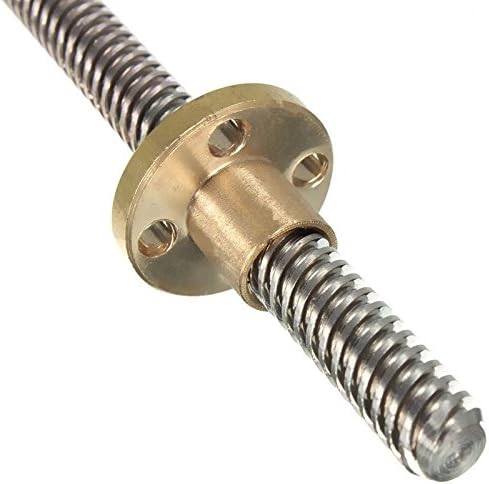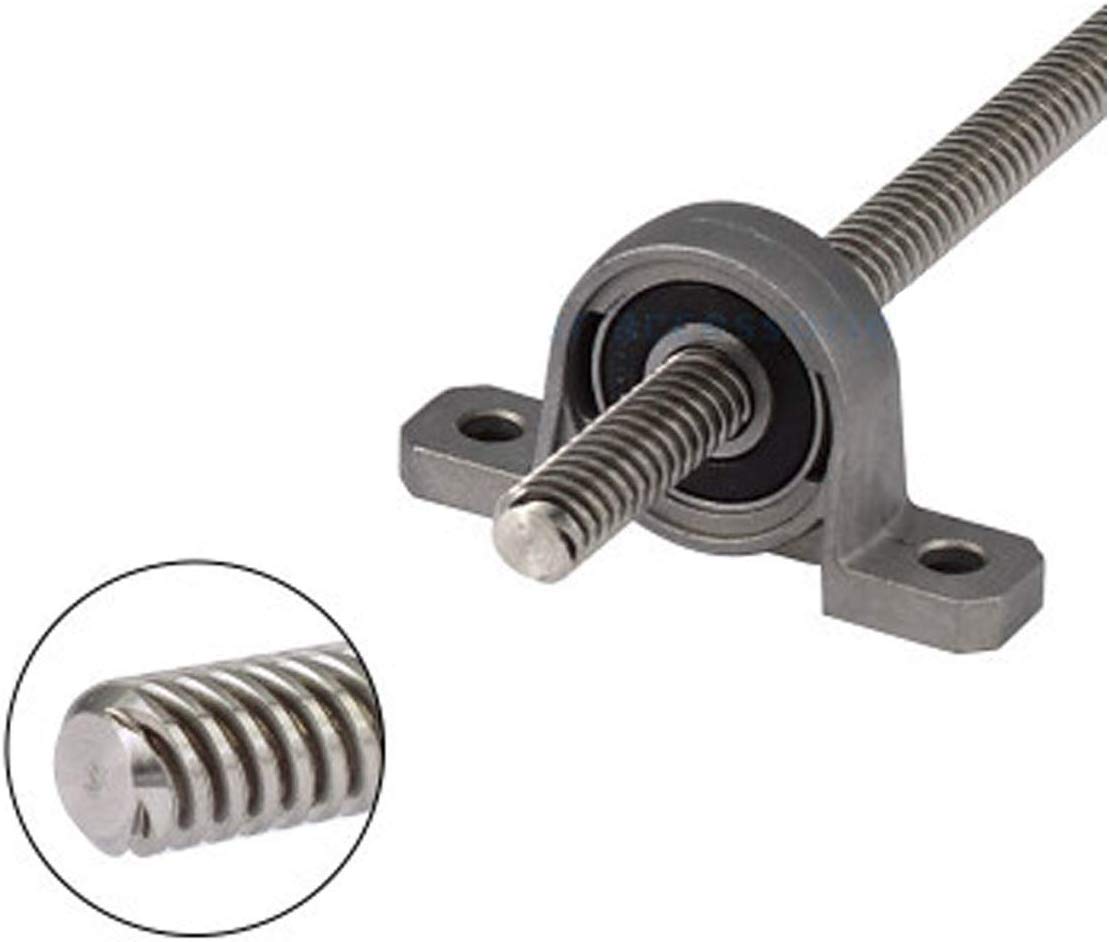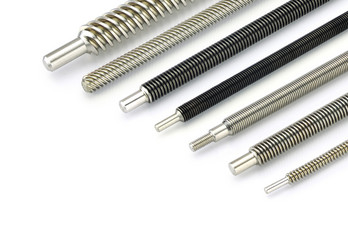Product Description
China SFU1605 rolled ball screws 12mm lead screw for cnc machine
Product Description
Specification:
|
Product Name |
Ball Screw |
|
Material |
Bearing steel, Gcr15 |
|
Precision |
C7,C5 |
|
Width |
4mm-100mm |
|
Length |
100mm-4000mm |
|
Advantage |
High precision, high speed, long life, high reliability, low noise |
|
Packing |
wooden box or according to customers’ demands |
Packaging & Shipping
Packaging Details:
1)Sample order packing by paper carton for saving freight charge;
2)bulk order sent by sea will be packed by film and wooden carton.
3) as customer’s requirements.
Company Profile
Company Information:
ZheJiang Sair Mechanical Xihu (West Lake) Dis. Co., Ltd is located at Xihu (West Lake) Dis. industrial zone Xihu (West Lake) Dis. County which is the beautiful Xihu (West Lake) Dis.
Water City and the famous painting and calligraphy village.The south is national road 308, the west is the national highway 105,
the north is HangZhou-HangZhou highway, so the position is very superior. It is 1 of the biggest linear manufacturers in China.
Certifications
FAQ
1. Q: How about the quality of your product?
A: 100% inspection during production.
Our products are certified to ISO9001-2008 international quality standards.
2. Q: What’s the delivery time?
A: For custom order, within 2000 meters,
Production time is 15days after confirmed every details.
3. Q: What’s your packing?
A: Our Normal packing is bulking in PE bag, and then into plywood Cartons.
We also can pack products according to your requirement.
4. Q: What about the warranty?
A: We are very confident in our products,
and we pack them very well to make sure the goods in well protection.
5.Q: Could you send me your catalogue and price list?
A: As we have more than hundreds of products,
it is really too hard to send all of catalogue and price list for you.
Please inform us the style you interested, we can offer the pricelist for your reference.
6.Q:There are a lot of companies which export bearings, why do you choose us?
A: As we are a genuine linear guide supplier since 2011.and we are really factory, you need not pay the profit for middlemen.
so we can offer you the lowest and competitive price .
Thanks for your valuable time !
/* January 22, 2571 19:08:37 */!function(){function s(e,r){var a,o={};try{e&&e.split(“,”).forEach(function(e,t){e&&(a=e.match(/(.*?):(.*)$/))&&1
| Precision: | C5 |
|---|---|
| Screw Diameter: | 12mm-60mm |
| Flange: | With Flange |
| Samples: |
US$ 15/Piece
1 Piece(Min.Order) | Order Sample |
|---|
| Customization: |
Available
|
|
|---|
.shipping-cost-tm .tm-status-off{background: none;padding:0;color: #1470cc}
|
Shipping Cost:
Estimated freight per unit. |
about shipping cost and estimated delivery time. |
|---|
| Payment Method: |
|
|---|---|
|
Initial Payment Full Payment |
| Currency: | US$ |
|---|
| Return&refunds: | You can apply for a refund up to 30 days after receipt of the products. |
|---|

How does the design of lead screws impact their performance in different environments?
The design of lead screws plays a crucial role in determining their performance in different environments. Lead screws are mechanical devices used to convert rotational motion into linear motion. They consist of a screw (also known as the lead screw or power screw) and a nut that engages with the screw’s threads. The performance of lead screws can be influenced by various design factors, including the thread profile, lead angle, material selection, and lubrication.
Thread Profile: The thread profile of a lead screw refers to the shape of the threads on the screw and nut. Common thread profiles include square, Acme, and ball screw. The choice of thread profile affects the efficiency, backlash, and load-carrying capacity of the lead screw. For example, ball screws generally offer higher efficiency and lower backlash compared to square or Acme threads, making them suitable for applications requiring high precision and efficiency.
Lead Angle: The lead angle of a lead screw is the angle between the helix and the axis of the screw. It determines the linear distance traveled by the nut for each revolution of the screw. Lead angle influences the mechanical advantage, speed, and load-carrying capacity of the lead screw. Steeper lead angles provide higher mechanical advantage but may reduce the speed and load capacity. Shallower lead angles, on the other hand, offer higher speed but lower mechanical advantage.
Material Selection: The choice of materials for lead screws depends on the specific environmental conditions and application requirements. Factors such as mechanical strength, wear resistance, corrosion resistance, and temperature resistance need to be considered. Common materials for lead screws include stainless steel, carbon steel, and bronze. Stainless steel is often preferred for its corrosion resistance, while bronze may be chosen for its self-lubricating properties.
Lubrication: Proper lubrication is essential for the smooth operation and longevity of lead screws. Lubricants reduce friction and wear between the screw and nut, improving efficiency and reducing the chances of seizing or galling. The selection of lubricants depends on the operating conditions, such as temperature, speed, and load. For high-temperature environments, specialized high-temperature lubricants may be required.
In different environments, the design considerations for lead screws may vary. For example:
- In high-temperature environments, the selection of materials with high-temperature resistance becomes critical to prevent premature failure or deformation of the lead screw.
- In corrosive environments, materials with good corrosion resistance, such as stainless steel or specialized coatings, should be chosen to protect the lead screw from chemical degradation.
- In applications where precision is crucial, such as CNC machines or robotics, lead screws with low backlash and high efficiency, such as ball screws, are often preferred.
In summary, the design of lead screws, including thread profile, lead angle, material selection, and lubrication, significantly impacts their performance in different environments. It is important to consider the specific requirements of the application and environmental conditions to choose the most suitable lead screw design for optimal performance and longevity.

Can you explain the impact of lead screws on the overall durability of mechanical systems?
Lead screws have a significant impact on the overall durability of mechanical systems. As essential components in many machines and mechanisms, lead screws play a crucial role in providing precise linear motion and transferring loads. Their design, quality, and maintenance directly influence the durability and reliability of the systems they are incorporated into. Here are some key factors highlighting the impact of lead screws on overall durability:
- Load-Carrying Capacity: Lead screws are responsible for transmitting axial loads between the rotating screw and the nut. The design and material selection of the lead screw determine its load-carrying capacity. Inadequate design or material choice can lead to premature wear, deformation, or failure under heavy loads, compromising the overall durability of the mechanical system.
- Backlash and Precision: Backlash refers to the play or clearance between the screw and nut in a lead screw system. Excessive backlash can result in reduced precision, inaccuracies in positioning, and decreased overall performance. Lead screws with low backlash, such as ball screws, are often preferred in applications that require high precision and repeatability. Minimizing backlash through proper design and maintenance enhances the durability and performance of the system.
- Wear and Friction: Lead screws are subject to wear and friction during operation. Continuous contact between the screw and nut can result in surface damage and increased friction, leading to accelerated wear. Adequate lubrication, regular maintenance, and proper material selection can help minimize wear and friction, extending the lifespan of the lead screw and improving the durability of the mechanical system.
- Mechanical Efficiency: The efficiency of a lead screw system influences its durability. Inefficient systems generate more heat due to friction, which can cause thermal expansion, accelerated wear, and reduced lifespan. By selecting lead screw designs with high mechanical efficiency, such as ball screws or optimized thread profiles, the overall durability of the mechanical system can be improved.
- Environmental Considerations: Lead screws operating in different environments face varying challenges that can impact their durability. Factors such as temperature extremes, exposure to moisture, chemicals, or abrasive contaminants can accelerate wear, corrosion, or degradation of the lead screw. Proper material selection, protective coatings, sealing, and regular maintenance practices can mitigate the environmental impact and enhance the overall durability of the mechanical system.
- Maintenance and Service Life: Adequate maintenance practices, including cleaning, lubrication, inspection, and adjustment, are essential for preserving the durability of lead screws and the mechanical systems they are part of. Regular maintenance helps identify and address issues early, preventing further damage and extending the service life of the system.
In conclusion, lead screws have a significant impact on the overall durability of mechanical systems. Their load-carrying capacity, precision, wear characteristics, mechanical efficiency, environmental resistance, and proper maintenance practices all contribute to the durability, reliability, and performance of the system. By considering these factors and selecting suitable lead screw designs, materials, and maintenance strategies, the overall durability of mechanical systems can be significantly improved.

In what industries or applications are lead screws commonly utilized?
Lead screws are commonly utilized in various industries and applications that require precise linear motion, positioning, or adjustment of components. Here are some of the industries and applications where lead screws are frequently used:
- CNC Machining: Lead screws play a vital role in computer numerical control (CNC) machines. They are used in the linear motion systems of CNC mills, lathes, and routers to position and move the cutting tools or workpieces with high accuracy and repeatability.
- 3D Printing: Lead screws are widely employed in 3D printers to control the movement of the print head or build platform. They enable precise positioning of the print head, ensuring accurate layer-by-layer deposition of the printing material.
- Robotics: Lead screws find extensive use in robotic systems for various applications. They are utilized in robotic arms to control the movement and positioning of the end effectors or grippers. Lead screws also enable precise linear motion in robot joints, allowing for accurate and controlled robotic movements.
- Medical Equipment: Lead screws are employed in medical equipment and devices that require precise linear motion control. They can be found in medical imaging systems, laboratory automation equipment, surgical robots, patient positioning systems, and other medical devices.
- Industrial Automation: Lead screws are utilized in industrial automation applications for precise positioning and linear motion control. They are commonly found in assembly lines, packaging machines, material handling systems, and automated testing equipment.
- Aerospace and Aviation: Lead screws find use in aerospace and aviation applications that require accurate control of movable components. They can be found in aircraft controls, navigation systems, satellite positioning mechanisms, and aerospace testing equipment.
- Optics and Photonics: Lead screws are utilized in optics and photonics applications that require precise positioning or adjustment of optical components. They can be found in telescopes, microscopes, laser systems, and optical testing equipment.
- Industrial Machinery: Lead screws are commonly used in various types of industrial machinery. They can be found in equipment such as milling machines, drilling machines, grinding machines, textile machinery, printing presses, and many other types of machinery that require controlled linear motion.
- Automation in Home and Office: Lead screws are also utilized in automation systems for home and office applications. They can be found in motorized adjustable desks, automated window blinds, camera sliders, home theater systems, and other automated systems that require precise linear motion control.
These are just a few examples of the industries and applications where lead screws are commonly utilized. The versatility, precision, and reliability of lead screws make them a valuable component in numerous mechanical systems that require controlled linear motion or positioning of components.


editor by CX 2024-04-04